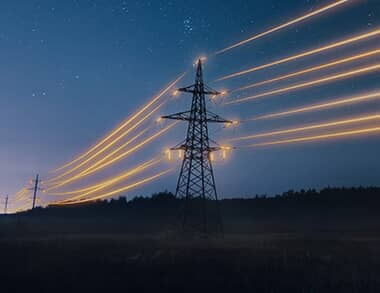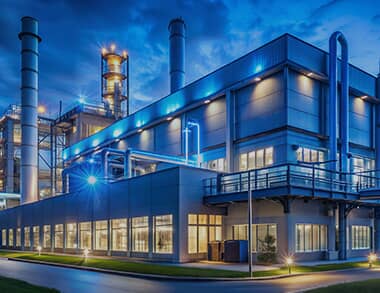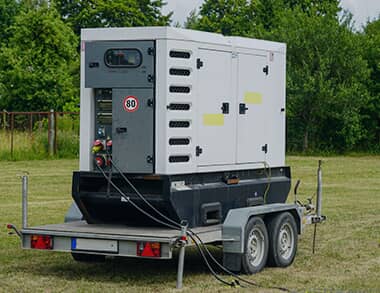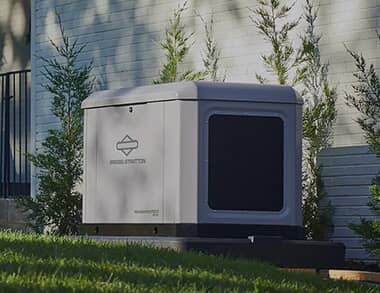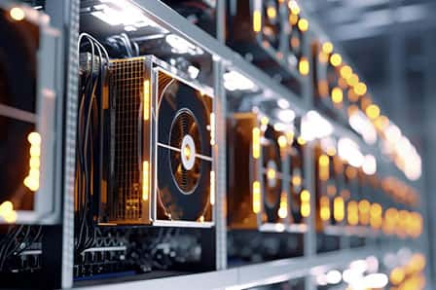Know the Most Common Causes of Emergency Generator Failure

Your emergency generator is only as good as the maintenance effort you put into the system. If you neglect maintenance, problems can simmer and fester unnoticed. Often, the companies don't discover these problems until the time comes to switch the generator on in an emergency. By then, it is too late to fix the problem. If you want to ensure your system performs in an emergency, make sure that you pay particular attention to the following common causes of emergency generator failures.
1. Bad Batteries and Electrical Faults. Batteries that lose their charge, wires that come loose, rusted connections, and battery plates covered in sulfation buildup can stop the flow of electricity before it starts. Always check these during your monthly, quarterly, and annual inspections.
2. Coolant Leaks. Coolant leaks are insidious because they typically occur slowly and go unnoticed. Insufficient coolant can prevent your generator from operating as required. Even worse, it can result in sudden failure and cause damage to the generator when the coolant drops below safe operating levels.
3. Fuel Leaks. As with coolant leaks, fuel leaks often occur slowly over time. Fuel leaks are extremely dangerous and can cause malfunctions and fires that can damage property and injure personnel. To prevent fuel leaks, make sure that your fuel pumps, fuel lines, and storage tanks are regularly checked and promptly repaired.
4. Poor Fuel Maintenance. Bad fuel can cause a bad day. Microbes, debris, inferior additives, and oxygen can all diminish the quality of your fuel. Further, purchasing a "great deal" on cheap fuel can result in the introduction of contaminants into fuel lines and engine components that can cause significant hidden damage. This includes clogged fuel injectors that can cause rough engine operation and result in excessive smoke generation. To protect your backup generator, make sure that you regularly inspect your fuel storage tanks as well as the quality of your fuel.
5. Faulty Settings. Every generator is sensitive to the inputs entered. When settings aren't correct, generators won't perform as required and can result in serious damage to the genset. Regularly reviewing parameters can ensure optimal efficiency and safe operation.
6. Water Damage. Water damage doesn't occur only to systems stored outside. Water in the air, on the ground, or splashed on the generator can facilitate rust and corrosion. Inspecting the wires, casing, and components for signs of corrosion doesn't take long, and it can save you significant repairs if any problems are discovered and corrected promptly.
We invite you to contact Gen-Tech Power Generation Specialists at 800-625-8324 to discuss the most common causes of generator failure our technicians come across. We are happy to answer your questions and help you develop customized maintenance plans that will address potential causes of failure for your company's emergency generator systems.
1. Bad Batteries and Electrical Faults. Batteries that lose their charge, wires that come loose, rusted connections, and battery plates covered in sulfation buildup can stop the flow of electricity before it starts. Always check these during your monthly, quarterly, and annual inspections.
2. Coolant Leaks. Coolant leaks are insidious because they typically occur slowly and go unnoticed. Insufficient coolant can prevent your generator from operating as required. Even worse, it can result in sudden failure and cause damage to the generator when the coolant drops below safe operating levels.
3. Fuel Leaks. As with coolant leaks, fuel leaks often occur slowly over time. Fuel leaks are extremely dangerous and can cause malfunctions and fires that can damage property and injure personnel. To prevent fuel leaks, make sure that your fuel pumps, fuel lines, and storage tanks are regularly checked and promptly repaired.
4. Poor Fuel Maintenance. Bad fuel can cause a bad day. Microbes, debris, inferior additives, and oxygen can all diminish the quality of your fuel. Further, purchasing a "great deal" on cheap fuel can result in the introduction of contaminants into fuel lines and engine components that can cause significant hidden damage. This includes clogged fuel injectors that can cause rough engine operation and result in excessive smoke generation. To protect your backup generator, make sure that you regularly inspect your fuel storage tanks as well as the quality of your fuel.
5. Faulty Settings. Every generator is sensitive to the inputs entered. When settings aren't correct, generators won't perform as required and can result in serious damage to the genset. Regularly reviewing parameters can ensure optimal efficiency and safe operation.
6. Water Damage. Water damage doesn't occur only to systems stored outside. Water in the air, on the ground, or splashed on the generator can facilitate rust and corrosion. Inspecting the wires, casing, and components for signs of corrosion doesn't take long, and it can save you significant repairs if any problems are discovered and corrected promptly.
We invite you to contact Gen-Tech Power Generation Specialists at 800-625-8324 to discuss the most common causes of generator failure our technicians come across. We are happy to answer your questions and help you develop customized maintenance plans that will address potential causes of failure for your company's emergency generator systems.
Topics:
From Insights to Power: Let’s Talk Solutions
Whether you need emergency power, maintenance, or expert guidance on your generator system, Gen-Tech has you covered. Our experienced team provides industry-leading service to keep your power running when it matters most. Call (800) 625-8324 to discuss your power generation needs today!
Contact Us
